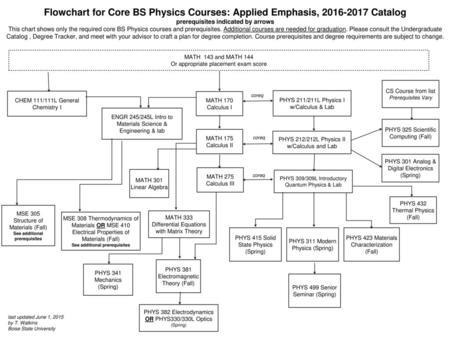
The Compensation and Benefits Manager supervises the activities and milestones of subordinate staff and ensures departmental budgets and project milestones. They also have full authority to take personnel actions. A typical compensation and benefits manager has five to three years experience with supervisory experience. They also need to be familiar with departmental processes.
Duties of the job
A compensation and benefit manager oversees all aspects related to an organization's benefits and compensation program. Your job entails analyzing data, identifying trends and monitoring employee benefit packages. They also consult with department heads and HR staff. Compensation and benefits managers must be aware of ever-changing employee benefit regulations. They must ensure that employee benefits packages comply with all statutory requirements as well as tax obligations.
The primary responsibility of a compensation and benefits manager is to create and implement cost-effective employee benefits programs. They must be able to make tough decisions, analyze new programs and ensure that policies and procedures comply with regulations. In addition to supporting the HR department in recruitment and hiring, compensation and benefits managers develop employee wellness programs. They also manage the department's budget.

Salary
A compensation and benefit manager makes a median annual salary of $122,270. The median salary for this position is determined by a number of factors, including education, years of experience, and certification. The highest-paid compensation and benefits managers earn more than $208,000. Although many compensation and benefits mangers work full-time, some might work overtime or more during peak times. According to the Bureau of Labor Statistics (Board of Labor Statistics), compensation and benefits managers are expected to increase by 3 percent in 2018 and 2028.
They oversee employee benefits, including salary structures and compensation. They research and establish company policies. They ensure employees get competitive wages and benefits. In addition to preparing annual and quarterly reviews, compensation and benefits managers also review employee wage budgets. Other compensation and benefits managers oversee other compensation specialists and ensure their accuracy. Other responsibilities include overseeing payroll distribution and organizing events to inform employees about benefits.
Education is required
A bachelor's degree and five years of experience in a related field is necessary to hold a position as compensation and benefits manager. Employers may prefer applicants with a masters degree. The compensation managers are responsible to implement employee benefits and compensation plans.
This career requires strong interpersonal skills as well as the ability to work under stress. They should possess an excellent mix of technical skills and human resources knowledge. Managers of compensation and benefits work full-time. They typically work forty hours or more per week. They may sometimes work overtime in order to meet deadlines. Although compensation and benefits managers can have many skills, they also need to be able to lead and manage people. They should also have an understanding of psychology and human behavior.

Employment outlook
A wide variety of responsibilities are required for compensation and benefits managers. These people must be able analyse data and provide recommendations to senior managers. They must be able to communicate well and demonstrate a high degree discretion and ethics. These professionals should also be familiar with the laws and regulations regarding compensation and benefits.
Typically, compensation and benefits managers need a bachelor's degree in business administration, human resources, or another related field. Online programs are also available. A traditional degree is not required. Compensation and benefits managers can also gain valuable work experience from other areas.
FAQ
What are the 4 major functions of management
Management is responsible for planning, organizing, directing, and controlling people and resources. It includes the development of policies and procedures as well as setting goals.
Organizations can achieve their goals through management. This includes leadership, coordination, control and motivation.
The following are the four core functions of management
Planning - Planning refers to deciding what is needed.
Organizing is the act of deciding how things should go.
Directing - Directing is when you get people to do what you ask.
Controlling – This refers to ensuring that tasks are carried out according to plan.
What is Six Sigma?
Six Sigma uses statistics to measure problems, find root causes, fix them, and learn from past mistakes.
The first step is to identify the problem.
Next, data will be collected and analyzed to determine trends and patterns.
Then, corrective actions can be taken to resolve the problem.
Finally, data will be reanalyzed to determine if there is an issue.
This cycle will continue until the problem is solved.
What are management principles?
Management Concepts are the management principles and practices that managers use in managing people and resources. They include such topics as human resource policies, job descriptions, performance evaluations, training programs, employee motivation, compensation systems, organizational structure, and many others.
Statistics
- The profession is expected to grow 7% by 2028, a bit faster than the national average. (wgu.edu)
- As of 2020, personal bankers or tellers make an average of $32,620 per year, according to the BLS. (wgu.edu)
- Your choice in Step 5 may very likely be the same or similar to the alternative you placed at the top of your list at the end of Step 4. (umassd.edu)
- Our program is 100% engineered for your success. (online.uc.edu)
- UpCounsel accepts only the top 5 percent of lawyers on its site. (upcounsel.com)
External Links
How To
How do you apply the Kaizen method to your life?
Kaizen means continuous improvement. The Japanese philosophy emphasizes small, incremental improvements to achieve continuous improvement. This term was created by Toyota Motor Corporation in 1950. This is a collaborative process in which people work together to improve their processes continually.
Kaizen is one the most important methods of Lean Manufacturing. This concept requires employees to identify and solve problems during manufacturing before they become major issues. This is how you can improve the quality and lower the cost.
Kaizen is an approach to making every worker aware and alert to what is happening around them. It is important to correct any problems immediately if they are discovered. If someone spots a problem while at work, they should immediately report it to their manager.
When doing kaizen, there are some principles we must follow. The end product is always our starting point and we work toward the beginning. If we want to improve our factory for example, we start by fixing the machines that make the final product. Then, we fix the machines that produce components and then the ones that produce raw materials. And finally, we fix the workers who work directly with those machines.
This approach is called 'kaizen' because it focuses on improving everything steps by step. Once we have finished fixing the factory, we return to the beginning and work until perfection.
To implement kaizen in your business, you need to find out how to measure its effectiveness. There are several ways to determine whether kaizen is working well. Another way to determine if kaizen is working well is to look at the quality of the products. Another method is to determine how much productivity has improved since the implementation of kaizen.
Another way to know whether kaizen is working is to ask yourself why did you decide to implement kaizen. Did you do it because it was legal or to save money? Did you really believe that it would be a success factor?
Congratulations if you answered "yes" to any of the questions. You are ready to start kaizen.